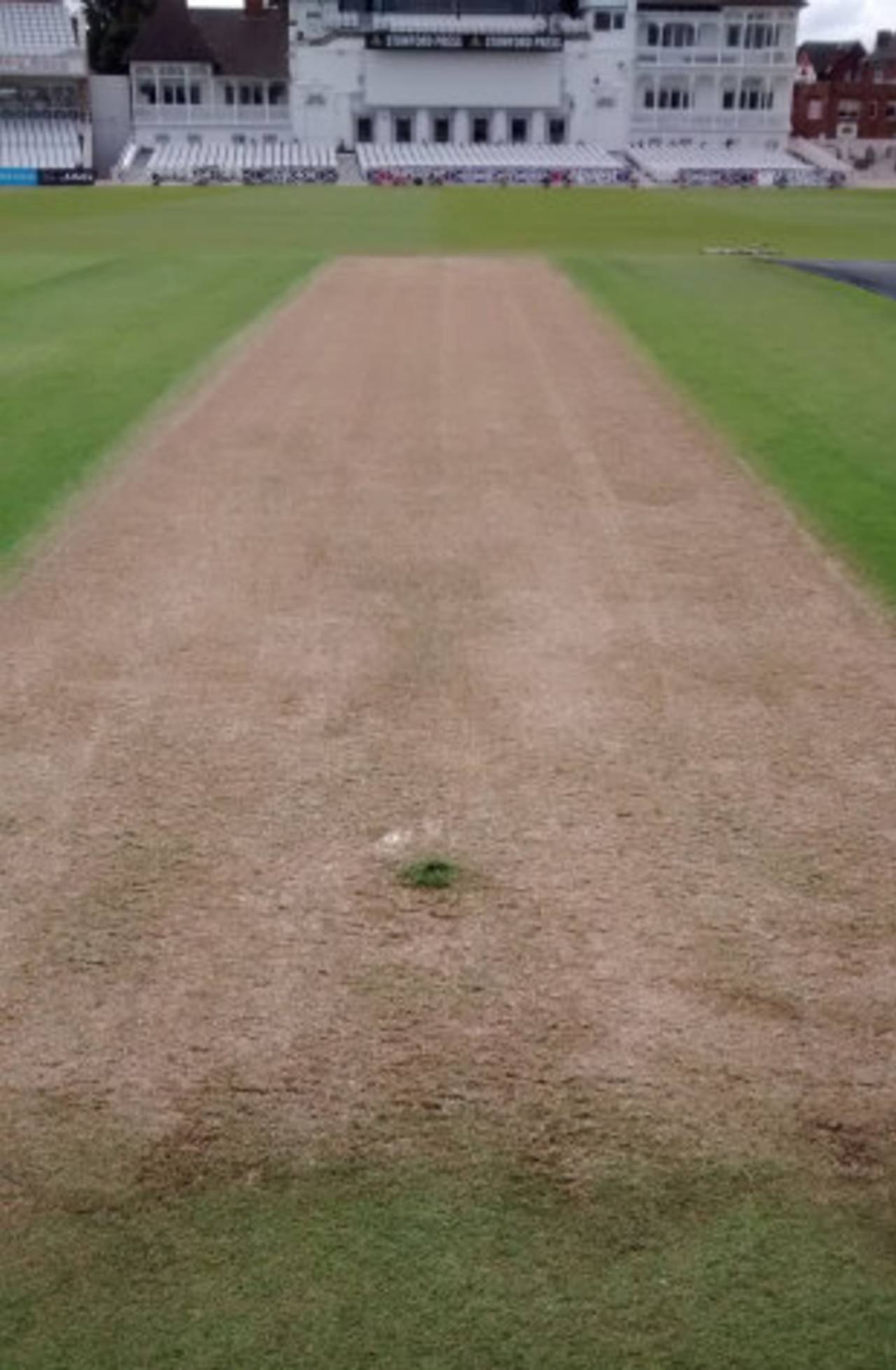Nottinghamshire could be facing a fine from the ICC after the Trent Bridge pitch for the
first Investec Test against India was rated as "poor" by match referee David Boon.
The pitch, slow, low and offering neither batsmen or bowlers any assistance, produced a largely stultifying game of cricket and, at the end of five day, only 29 wickets had fallen. While India scored 457 and 391 for 9, England scored 496 in the drawn game.
Boon subsequently submitted his report to the ICC and it has now been forwarded to the ECB who have 14 days to respond. After the ECB has submitted its response, the ICC's general manager of cricket, Geoff Allardice, and the ICC's chief match referee, Ranjan Madugalle, will consider all the evidence, including studying video footage of the match, before reaching their decision on whether or not the pitch was poor and if so, what penalty should be imposed in accordance with the ICC's pitch monitoring process.
After the first day's play, Steve Birks, the Trent Bridge groundsman,
admitted he was disappointed with the surface and said he may have "have left a bit more grass on" the pitch.
An ECB statement was at pains to suggest that improved drainage in outfields on England's Test grounds, specifically Trent Bridge in this case, did not affect the behaviour of the pitch. It has been widely speculated that better drainage has contributed to drying out squares on several grounds and changing their character.
"ECB and Nottinghamshire are already working closely to address the uncharacteristic nature of the pitch for the Test match and ECB pitch inspector Chris Wood and Nottinghamshire groundsman Steve Birks are planning the corrective action required under the Clause 4.1 of the ICC's Pitch Monitoring Process.
"It has already been established that the drainage system at Trent Bridge played no part in the unexpected issues that arose around the preparation and performance of the Test Match wicket."
Nottinghamshire's chief executive, Lisa Pursehouse, was quick to defend Birks' reputation. "We are naturally disappointed to have produced a pitch rated poor, which is at odds with our record of producing consistently good pitches for international matches at Trent Bridge," she said.
"The role of a Test Match Venue groundsman is fraught with immense pressure and variable factors and we are blessed to have one of the very best in Steve Birks. We will cooperate fully with this process and re-establish our enduring reputation for producing good cricket wickets."
According to the ICC's process, if a pitch is rated poor, the penalty on the first occasion is a warning and/or a fine of up to $15,000 along with a directive for corrective action. On second and subsequent occasions, within five years of the first report, a fine not exceeding $30,000 is handed along with a directive.
The track at Trent Bridge was
in the news earlier in the English domestic season, when a Division One game between Nottinghamshire and Warwickshire ended in three days. A pitch panel convened by the ECB decided not to impose a penalty on Nottinghamshire for the state of the pitch then.
It is the first time an international pitch in the UK has been rated as "poor" since a new process for grading pitches was introduced by the ICC in 2010, though pitches in Galle and St Kitts have also been rated poor. In extreme cases, the ICC can also describe a surface as "unfit."
Any punishment in this case is likely to be little more than symbolic. A reprimand is the likely sanction, while fines for first offences are capped at a maximum of $15,000. The fact that the groundsman issued the statement at the end of day one of the match is likely to work in the club's favour. There is no chance of any future major matches being reallocated away from the ground.
George Dobell is a senior correspondent at ESPNcricinfo
